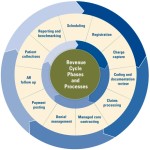7 Steps To Reduce Claim Denials and Recoup Lost Revenue
Claim denials are one of the largest areas of lost revenue for health care organizations. They are also one of the simplest things to quantify, address and correct. Reducing denials is a valuable way to increase profitability amidst the difficult financial situation organizations face due to things like Medicare cutbacks and lower reimbursement rates. Targeting denied claims can directly benefit your organization’s bottom line by recouping lost revenue and accelerating your revenue cycle.






